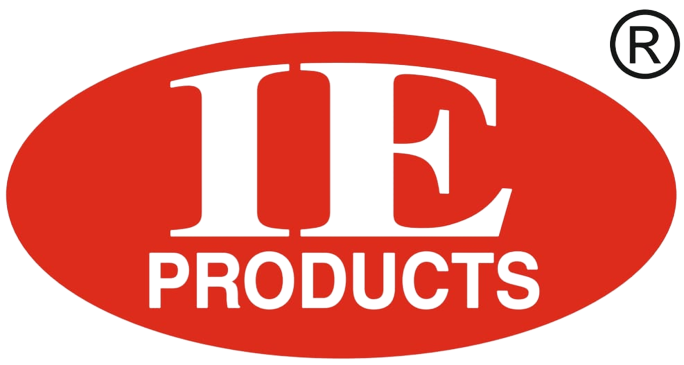Though small businesses aren’t required to follow the same rules, doing so can help ensure a higher level of consistency. For a small business, accounting involves tracking money flow in various forms, including operating expenses (e.g., marketing, utilities, rent), cost of goods sold, accounts receivable and sales. It also takes into account liabilities, such as accounts payable, business loans and taxes, and the value of your assets, such as cash and inventory. Accounting is the practice of tracking your business’s financial data and interpreting it into valuable insights. This allows you to generate crucial financial statements, such as a balance sheet, cash flow statement, and profit and loss report.
These programs also send your customers’ receipts, reconcile your transactions, and handle returns if necessary. Not only will this help offset some upfront expenses, but it will also contribute to your business’s overall credit. Also, Corporations and LLCs are required to have a separate line of credit outside their personal accounts. This principle states that the accountant has reported all information consistently throughout the reporting process. Under the principle of consistency, accountants must clearly state any changes in financial data on financial statements. According to Statista, 64% of small businesses use accounting software for their finances.
Identify the right payment gateway for your needs.
In the meantime, start building your store with a free 3-day trial of Shopify. The difference between how much you sell a product for and how much the business actually takes home at the end of the day is what truly determines your ability to keep the doors open. take-home point The world of ecommerce has made it easier than ever to sell to customers outside of your state and even country. While this is a great opportunity for brands with growth goals, it introduces confusing sales tax regulations that can cause headaches down the line.

Many businesses operate out of a cash account – or a business bank account that holds liquid assets for the business. When a company pays for an expense out of pocket, the cash account is credited, because money is moving from the account to cover the expense. This means the expense is debited because the funds credited from the cash account are covering the cost of that expense.
Establish a bookkeeping system.
Kelly is an SMB Editor specializing in starting and marketing new ventures. Before joining the team, she was a Content Producer at Fit Small Business where she served as an editor and strategist covering small business marketing content. She is a former Google Tech Entrepreneur and she holds an MSc in International Marketing from Edinburgh Napier University. We looked at dozens of third-party user reviews to see if the providers live up to their marketing claims. This helped to gauge the quality of each product further and provide deeper insights into what each does well—and where they fall short. If you have not prepared a budget, compare your current year-to-date P&L with the same prior period, year-to-date income statement to identify variances and make adjustments.
SEC Charges Audit Firm Marcum LLP for Widespread Quality … – SEC.gov
SEC Charges Audit Firm Marcum LLP for Widespread Quality ….
Posted: Wed, 21 Jun 2023 15:06:26 GMT [source]
All you have to do is fill in the blanks and select from lists of variables like customers and items. Early setup involves creating an account and answering questions like when your fiscal year starts and what type of business you have. While it’s at least as capable as some of the best of its competitors, Zoho Books is surprisingly affordable, and it even has a free version, though prices for paid plans increased this year. Overall, though, Zoho Books is best for businesses that use some of Zoho’s other applications, but its appeal isn’t limited to such cases. We also recommend it to small businesses, growing businesses, and established businesses that want its customizability, depth, and usability. That said, the depth of its features might be overwhelming to very small businesses but welcomed by companies with more advanced needs.
Free: Business Plan Template
Nothing compares to using the products when considering which is the best. We took our own first-hand expertise in the field of accounting and of using these providers to decipher which ones belong at the top of our roundup. The best accounting software is not only affordable and feature-rich, but it is also designed to be easy to use.
These accounting basics are broken down into four easy-to-understand steps. Depending on your business structure, you might also want to open a separate small business credit card to earn points or other rewards and build your business credit. Business accounting is the systematic recording, analyzing, interpreting and presenting of financial information. Accounting may be done by one person in a small business, or by different teams in large organizations. These include NCH, Zoho Books, Kashoo, ZipBooks, Sunrise, GnuCash, TrulySmall Invoices and Wave Accounting. It’s easy to use and perfect for self-employed entrepreneurs who need an affordable accounting solution.
Important accounting terms
Entrepreneurs have to be aware of the financial health of their businesses and good grasp of accounting basics. Wave is PCI Level-1 certified for handling credit card and bank account information. Wave’s smart dashboard organizes your income, expenses, payments, and invoices. Track your income and expenses, easily and for free, with Wave’s accounting software.
- It’s been one of the best decisions I’ve made when it comes to making sure my accounting is on point.
- Collecting money in person (at a storefront, marketplace, etc.) can get pricey.
- Accounting helps small business owners gauge the health and value of the company, to make better decisions about short- and long-term success.
- Perhaps you’re managing on your own for now but are considering expanding in the future.
- It only takes a few seconds to generate a report after you have defined it.
- To do this, companies make projections or hypothetical scenarios that may involve predicting future financing needs, allocating funds and organizing spending around cash flow, or creating budgets.
Say you’re comparing two departments, but they record the same transactions in different ways. By law, accountants representing all publicly traded companies must comply with GAAP. Capital refers to the money you have to invest or spend on growing your business. Commonly referred to as “working capital,” capital refers to funds that can be accessed (like cash in the bank) and don’t include assets or liabilities. Not to be confused with your personal debit and credit cards, debits and credits are foundational accounting terms to know.
Accounting software does a lot of the heavy lifting (such as keeping track of debits and credits) for you. However, it’s still important to understand basic accounting principles to know what’s happening behind the scenes. Business owners should be able to enter transactions, reconcile accounts and interpret financial statements accurately.
- An adjusted trial balance is the most accurate record of your financial activity, and your accountant will use the trial balance to prepare financial statements and calculate your tax obligations.
- Once the bookkeeper posts all transactions, the accountant generates a trial balance that lists all business accounts and balances.
- If you use accounting software, all of these journals and ledgers are created behind the scenes.
- Transactions will appear in your bookkeeping automatically, and you can say goodbye manual receipt entry.



